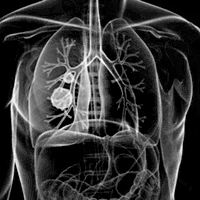Factors contributing to drug-resistant tuberculosis treatment outcome in five countries in the Eastern Europe and Central Asia region

Submitted: January 28, 2020
Accepted: March 11, 2020
Published: March 30, 2020
Accepted: March 11, 2020
Abstract Views: 1890
PDF: 1133
Publisher's note
All claims expressed in this article are solely those of the authors and do not necessarily represent those of their affiliated organizations, or those of the publisher, the editors and the reviewers. Any product that may be evaluated in this article or claim that may be made by its manufacturer is not guaranteed or endorsed by the publisher.
All claims expressed in this article are solely those of the authors and do not necessarily represent those of their affiliated organizations, or those of the publisher, the editors and the reviewers. Any product that may be evaluated in this article or claim that may be made by its manufacturer is not guaranteed or endorsed by the publisher.
Similar Articles
- G. Leoncini, L. Iurilli, L. Boni, G. Blanco, P. De Bellis, G. Catrambone, Treatment of iatrogenic and traumatic tracheal disruptions , Monaldi Archives for Chest Disease: Vol. 69 No. 3 (2008): Pulmonary series
- S.M. Mirsaeidi, P. Tabarsi, M.O. Edrissian, M. Amiri, P. Farnia, S.D. Mansouri, M.R. Masjedi, A.A. Velayati, Primary multi-drug resistant tuberculosis presented as lymphadenitis in a patient without HIV infection , Monaldi Archives for Chest Disease: Vol. 61 No. 4 (2004): Pulmonary series
- Carlos A. Jiménez-Ruiz, Marcos Garcia Rueda, Manuel A. Martinez Muñiz, Jacobo Sellarés, Maria A. Jiménez-Fuentes, Lourdes Lázaro Asegurado, Esther RodrÃguez Gonzalez, Concepción Rodriguez Garcia, Oriol Armengol, Emilia Abad, Teresa Peña, Adolfo Domenech del Rio, Juan A. Riesco Miranda, Varenicline in smokers with severe or very severe COPD after 24 weeks of treatment. A descriptive analysis: VALUE study , Monaldi Archives for Chest Disease: Vol. 87 No. 3 (2017)
- Enrico Vizzardi, Ilaria Cavazzana, Franco Franceschini, Ivano Bonadei, Edoardo Sciatti, Carlo M Lombardi, Angela Tincani, Marco Metra, Left ventricular function in rheumatoid arthritis during anti-TNF-α treatment: a speckle tracking prospective echocardiographic study , Monaldi Archives for Chest Disease: Vol. 84 No. 1-2 (2015): Cardiac series
- Kiran B, Rupak Singla, Neeta Singla, Vinay V, Kuljeet Singh, Madhumita Paul Choudhury, Nilotpal Bhattacherjee, Factors affecting the treatment outcome of injection based shorter MDR-TB regimen at a referral centre in India , Monaldi Archives for Chest Disease: Vol. 93 No. 3 (2023)
- Gabriele Valli, Francesca De Marco, Maria Teresa Spina, Valentina Valeriano, Antonello Rosa, Valentina Minerva, Enrico Mirante, Maria Pia Ruggieri, Francesco Rocco Pugliese, A pilot study on the application of the current European guidelines for the management of acute coronary syndrome without elevation of ST segment (NSTEMI) in the Emergency Department setting in the Italian region Lazio , Monaldi Archives for Chest Disease: Vol. 82 No. 4 (2014): Cardiac series
- Rupak Singla, Amitesh Gupta, Vikas Kumar, Chandrasekaran Padmapriyadarsini, Devika Tayal, Shweta Anand, Abhishek Faye, AK Hemanth Kumar, Madhumita Paul Choudhary, Study of risk factors and clinical management of patients with clinical non-response due to low plasma levels of anti-tubercular drugs , Monaldi Archives for Chest Disease: Early Access
- Teona Avaliani, Yuliia Sereda, Hayk Davtyan, Nestani Tukvadze, Tamar Togonidze, Nana Kiria, Olga Denisiuk, Ogtay Gozalov, Sevim Ahmedov, Arax Hovhannesyan, Effectiveness and safety of fully oral modified shorter treatment regimen for multidrug-resistant tuberculosis in Georgia, 2019-2020 , Monaldi Archives for Chest Disease: Vol. 91 No. 1 (2021)
- Alessandra Schiavo, Francesca M. Stagnaro, Andrea Salzano, Alberto M. Marra, Emanuele Bobbio, Pietro Valente, Simona Grassi, Martina Miniero, Michele Arcopinto, Margherita Matarazzo, Raffaele Napoli, Antonio Cittadini, Pregabalin-induced first degree atrioventricular block in a young patient treated for pain from extrapulmonary tuberculosis , Monaldi Archives for Chest Disease: Vol. 87 No. 3 (2017)
- R. Luzzati, M. Confalonieri, A. Cazzadori, P. Della Loggia, R. Cifaldi, C. Fabris, M. Biolo, M. Borelli, C. Longo, E. Concia, Prolonged hospitalisation for immigrants and high risk patients with positive smear pulmonary tuberculosis , Monaldi Archives for Chest Disease: Vol. 75 No. 2 (2011): Pulmonary series
You may also start an advanced similarity search for this article.

 https://doi.org/10.4081/monaldi.2020.1235
https://doi.org/10.4081/monaldi.2020.1235




